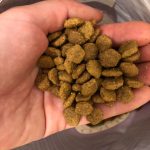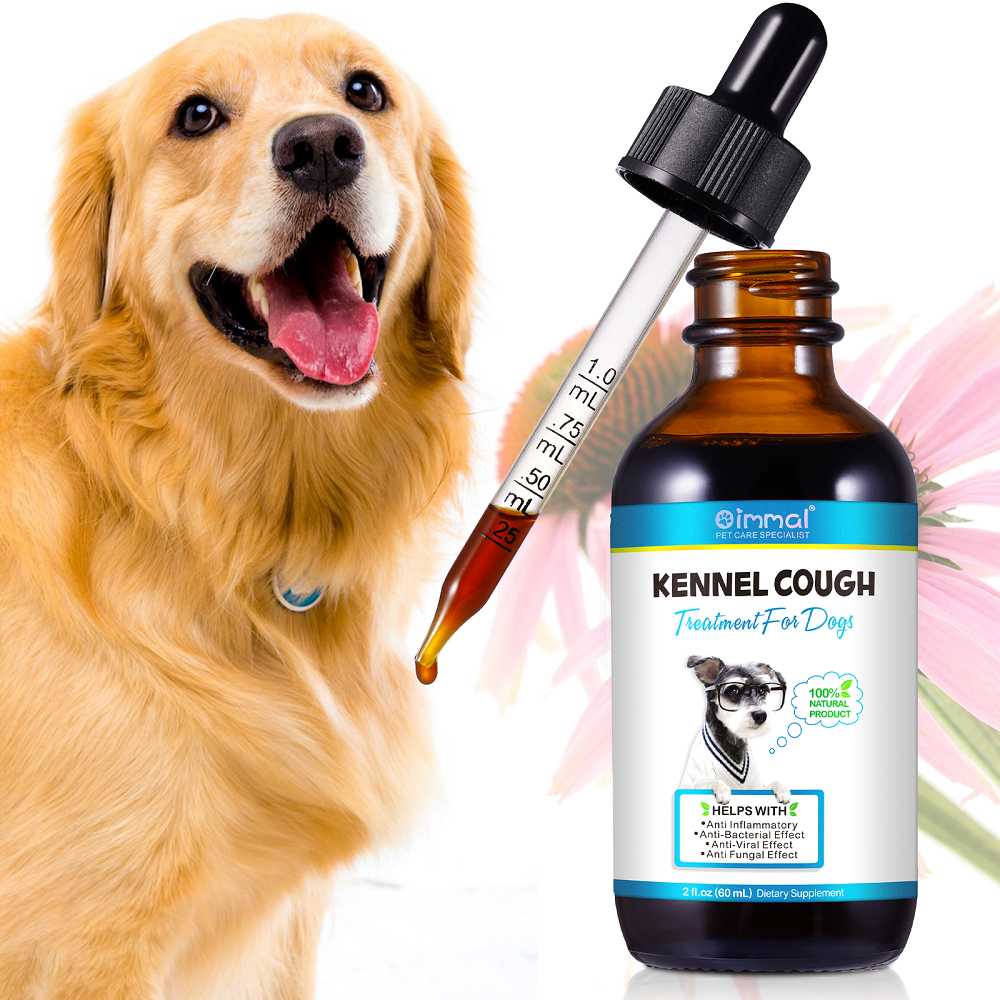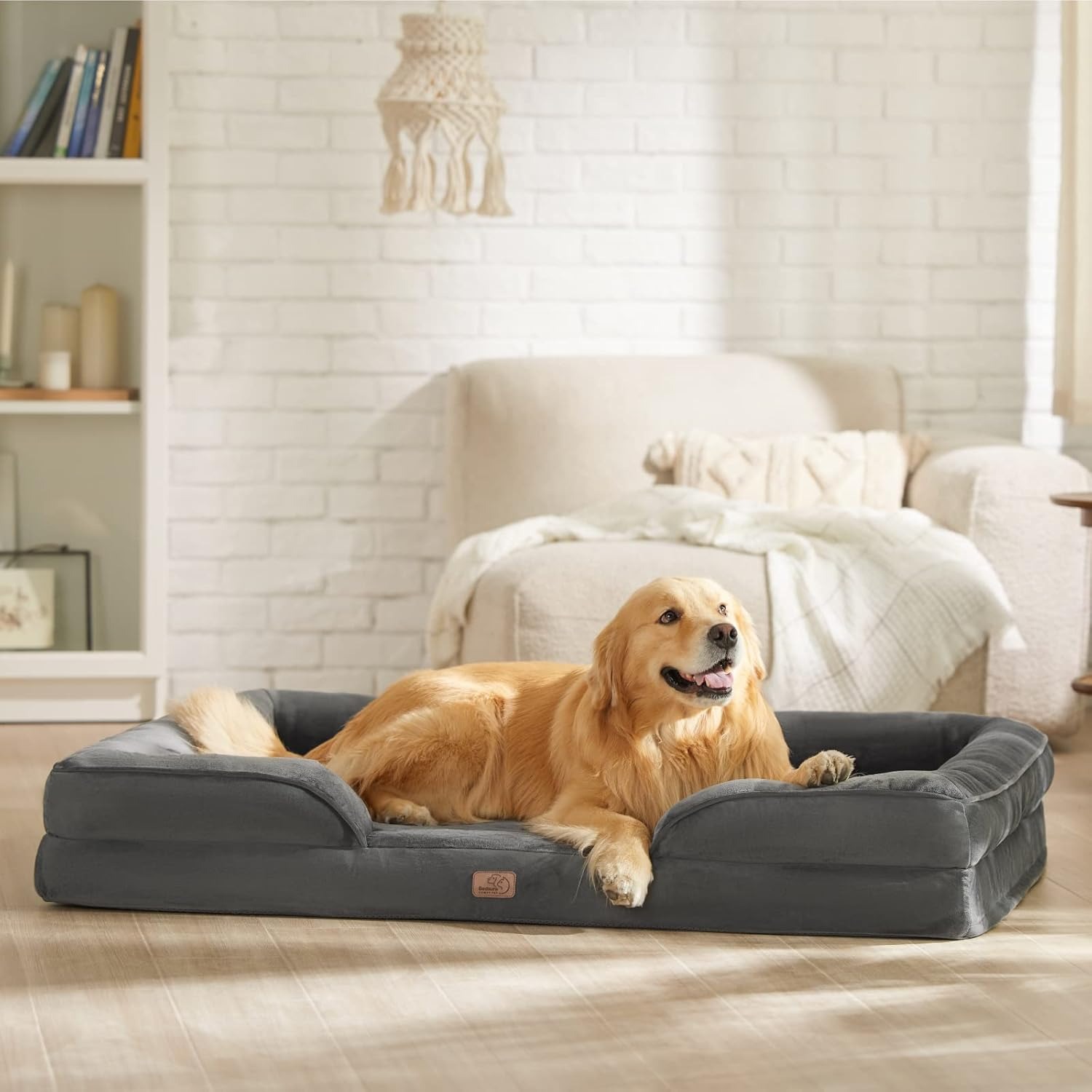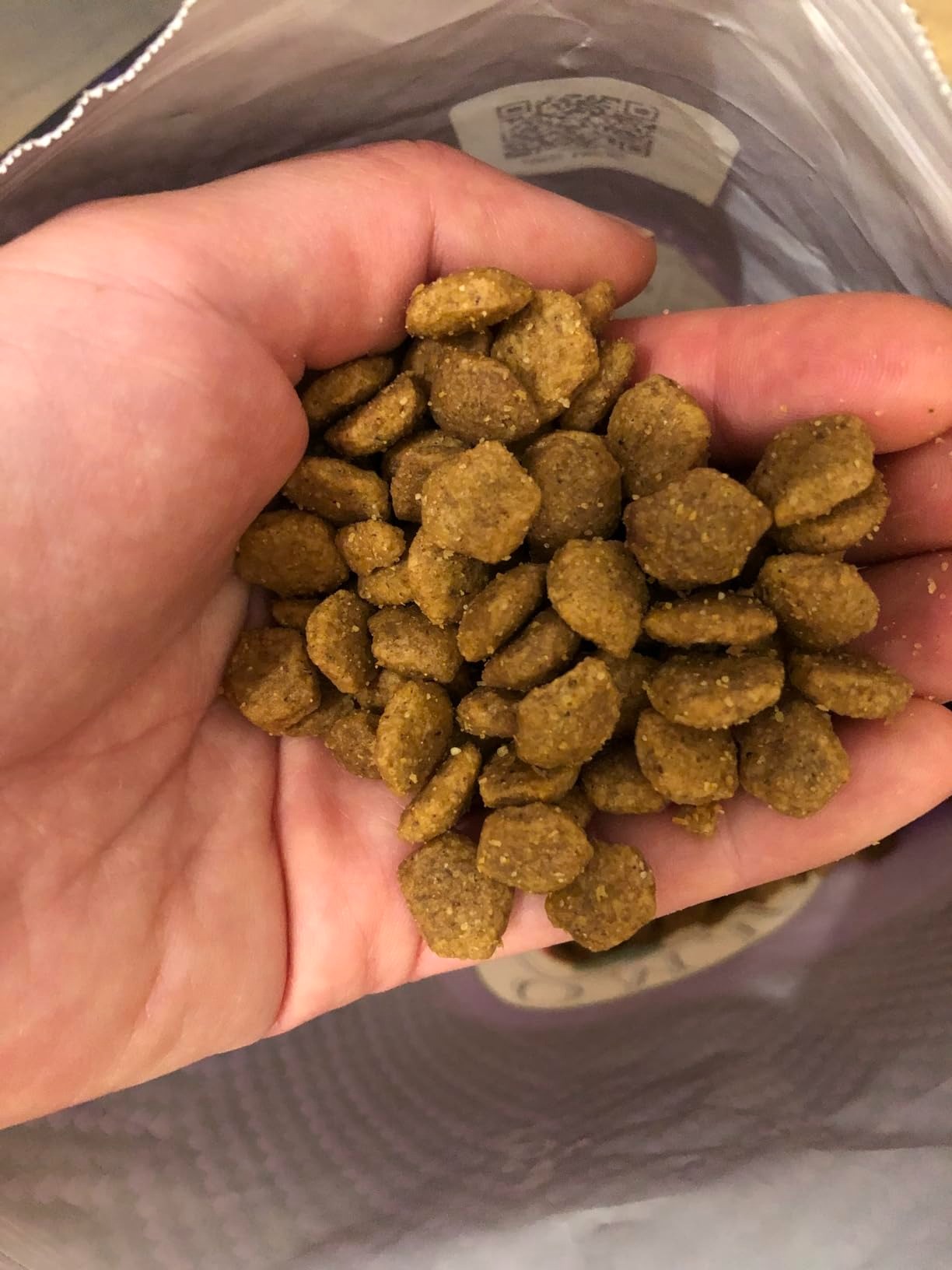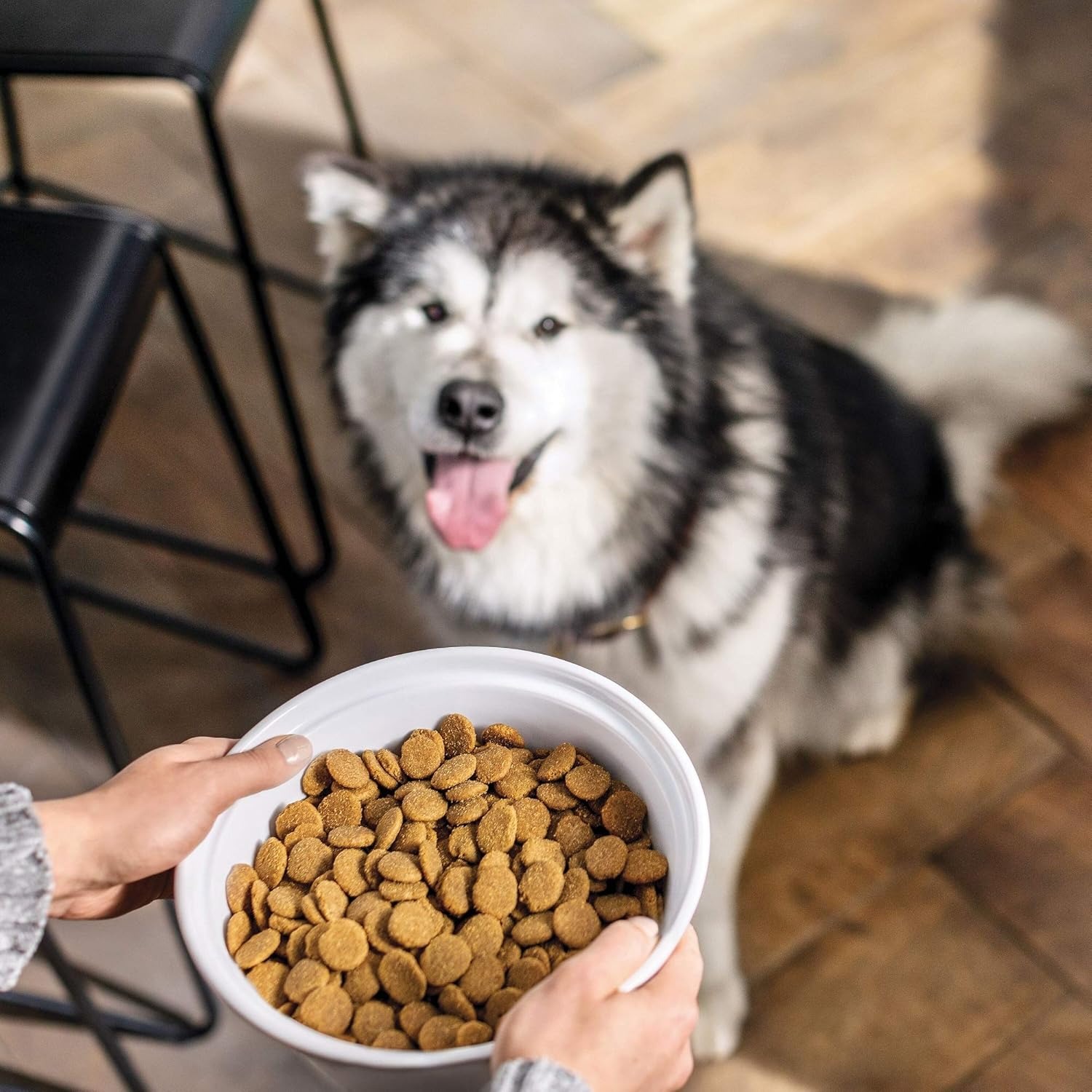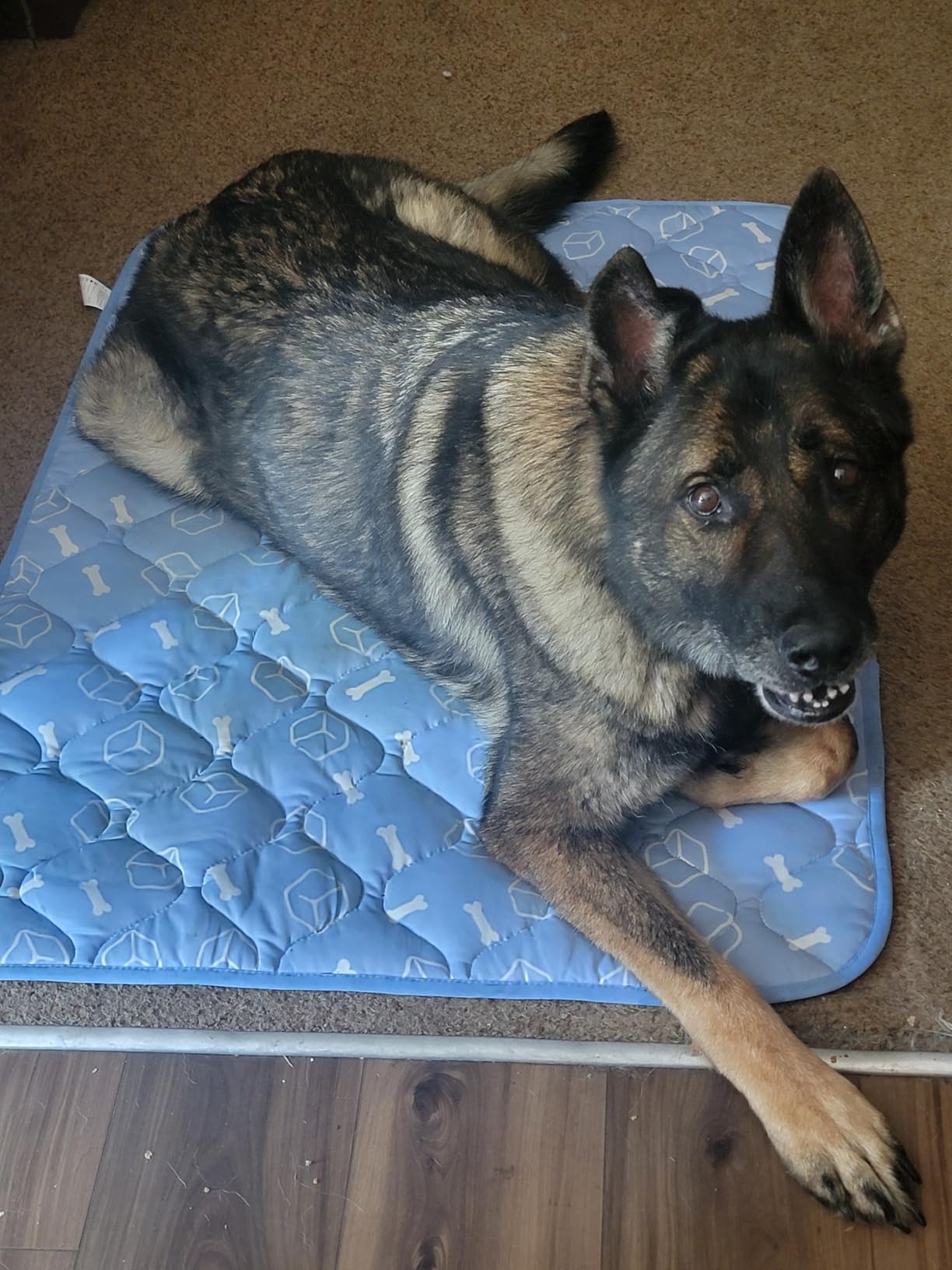Introduction to Kennel Cough
Kennel cough is a common but highly infectious respiratory condition found in dogs. Known also as canine infectious tracheobronchitis, it affects a dog’s windpipe and voice box. This illness is quite similar to a chest cold in humans.
Caused by various viruses and bacteria, kennel cough is most often spread in places where dogs gather. It can occur anywhere from dog parks to kennels, and its symptoms are recognizable. Dogs with kennel cough typically suffer from a dry, hacking cough. This can lead to a retch, which sometimes produces white frothy phlegm.
The illness usually appears after dogs have been in close contact with each other. This contact can happen during playtime or simply by sharing water bowls with an infected dog. Commonly, symptoms develop three to ten days after exposure to the pathogen.
Despite its name, kennel cough isn’t limited to dogs who visit kennels. Any dog that interacts with other canines is at risk. This is why vaccination and proper hygiene are key in preventing the spread of kennel cough. In the next sections, we will discuss symptoms to watch for, how the disease spreads, and various treatment options to manage this condition.
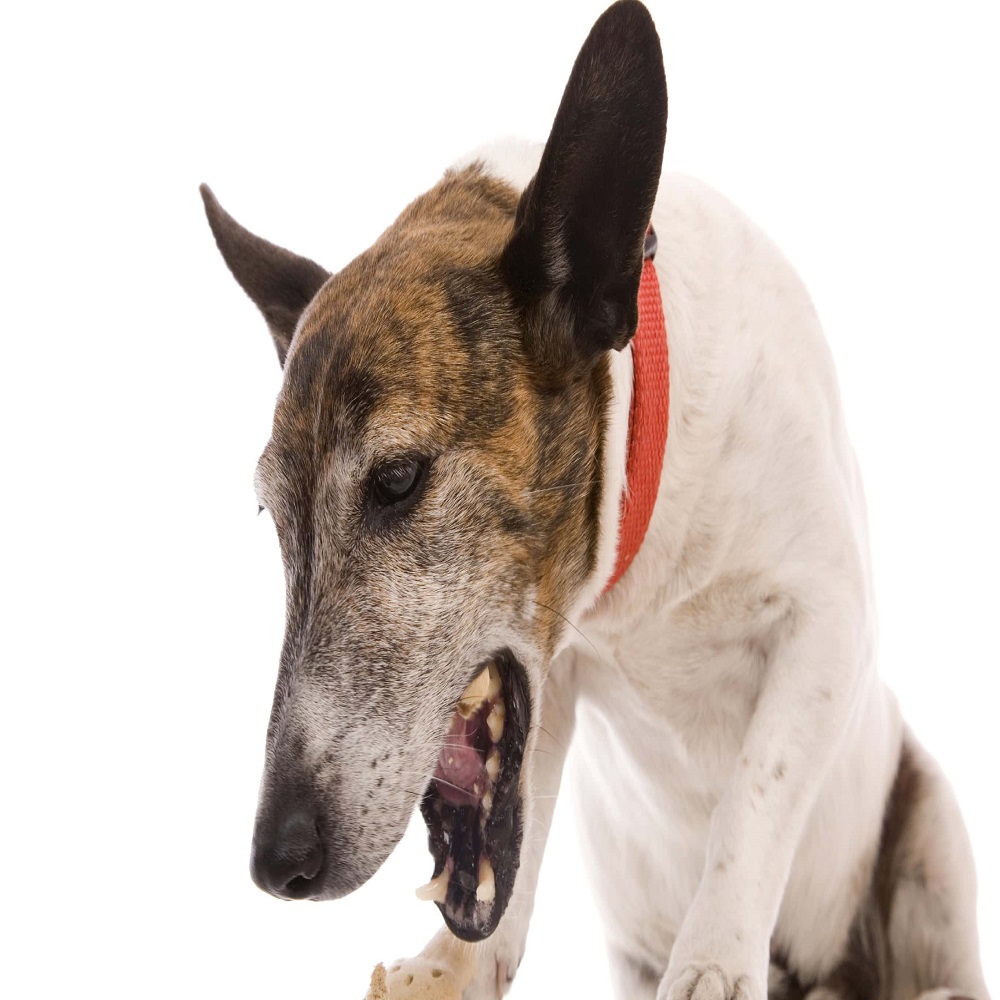
Common Symptoms of Kennel Cough
Identifying the common symptoms of kennel cough is crucial for early detection and treatment. Dogs suffering from this respiratory condition exhibit a range of signs that are easily noticeable.
The Signature Cough
The most distinct symptom is a dry, hacking cough. It often sounds like the dog is trying to clear something from its throat. In some cases, this cough can lead to a retching sound, potentially followed by the expulsion of white, frothy phlegm.
Nasal Discharge and Sneezing
Alongside the cough, dogs may exhibit a runny nose and sneezing. This nasal discharge can vary from clear to a more concerning greenish tint, which indicates a secondary infection.
General Lethargy and Reduced Appetite
Dogs with kennel cough often show decreased energy levels and a noticeable loss of appetite. They may seem less enthusiastic about playtime or walks, preferring to lie down and rest.
Slight Fever
A mild fever can sometimes accompany kennel cough. While not as common, it’s a sign that the dog’s body is fighting an infection.
These symptoms can appear within three to ten days after exposure to the virus or bacteria responsible for kennel cough. Prompt recognition of these signs can lead to quicker treatment, potentially reducing the duration of the illness.
Understanding the Causes and Spread
Kennel cough is akin to a cold for dogs, caused by various pathogens, including viruses and bacteria. The illness is notorious for its contagious nature, often spreading rapidly in settings where dogs congregate. Understanding the causes and how kennel cough spreads are essential for preventing and controlling outbreaks.
Viral and Bacterial Culprits
Among the leading causes of kennel cough are the Bordetella bronchiseptica bacteria and the canine parainfluenza virus. However, several other viruses and bacteria can lead to similar symptoms. These include canine adenovirus, canine distemper virus, and mycoplasma.
Transmission Through Close Contact
The infection typically spreads through airborne droplets when an infected dog coughs or sneezes. It can also be transmitted via contaminated surfaces, such as shared water bowls or toys, and through direct contact between dogs.
Environment as a Factor
Kennel cough thrives in places with poor ventilation and crowded conditions, which is why it’s commonly associated with kennels, shelters, and doggy daycare centers. The risk of infection can also increase in damp, cold environments.
Stress and Immunity
Dogs that are stressed or have weakened immune systems are more susceptible to contracting kennel cough. Stress can be induced by changes in environment, travel, or boarding, and can lower a dog’s resistance to infection.
Understanding these factors is crucial for protecting dogs from kennel cough. By managing the environment and reducing stressors, the spread of the illness can be limited, ensuring that dogs stay healthier and happier.
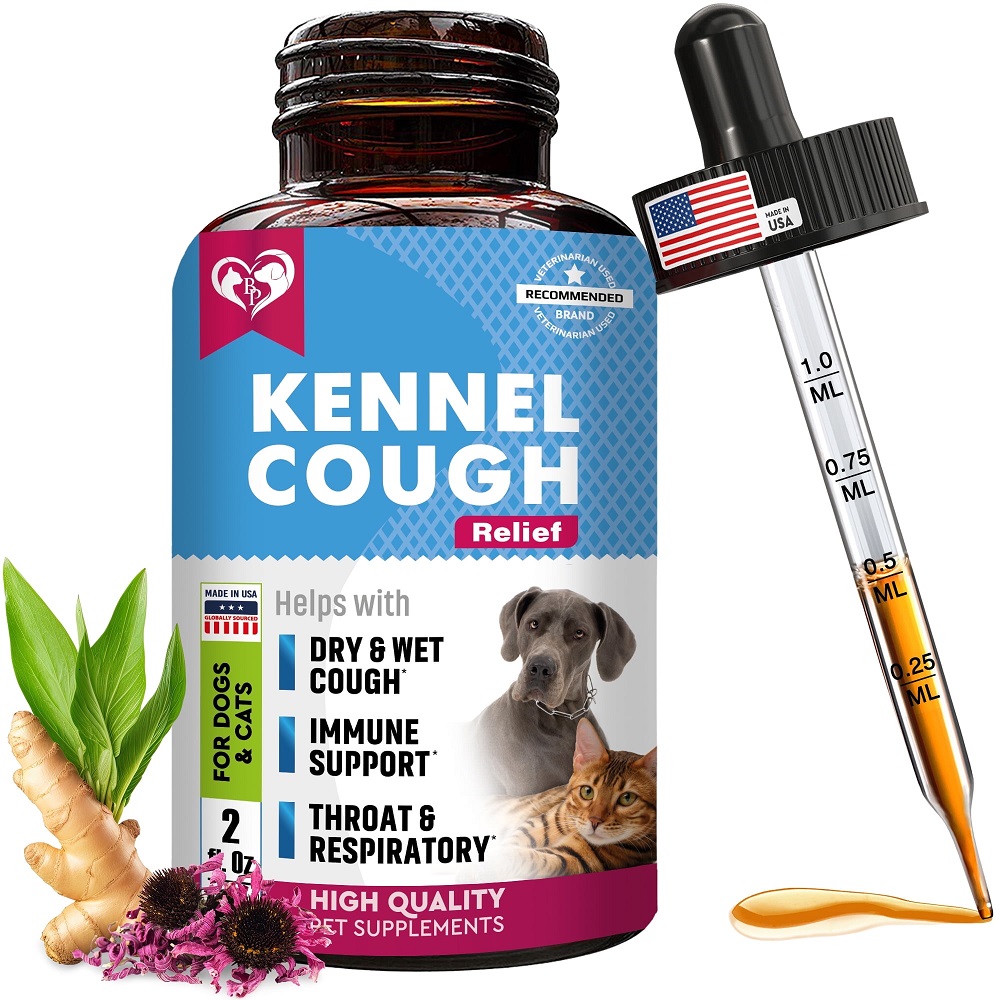
Diagnosing Kennel Cough in Dogs
When your dog starts showing signs of a persistent cough, it’s essential to determine if kennel cough is the culprit. Veterinarians have a straightforward approach to diagnosing this condition. Here’s what you can expect during a visit to the vet.
Clinical Examination
Your vet will start with a thorough physical exam. The exam will focus on your dog’s respiratory system. They will listen to your dog’s lungs, and check for any signs of a runny nose or eye discharge.
Medical History
Expect to answer questions about your dog’s recent activities. Sharing information like recent stays in kennels or interaction with other dogs can be helpful.
Cough Test
A gentle pressure on the trachea can trigger a cough in dogs with kennel cough. Your vet might use this technique during their examination.
Additional Tests
Though the initial diagnosis often relies on symptoms, additional tests may be needed. These might include chest X-rays, or tests for specific viruses or bacteria. If your dog isn’t responding to standard treatments, or if their symptoms are severe, further testing can identify the exact cause. This helps in choosing the best treatment.
PCR Tests
A newer test for diagnosing kennel cough is the polymerase chain reaction (PCR) test. This test can detect the genetic material of the pathogens causing the illness. It’s a non-invasive test, but may take some time to get results.
Recognizing symptoms early and consulting your vet can lead to prompt diagnosis. This can ease your dog’s discomfort and prevent the spread of kennel cough to other dogs.
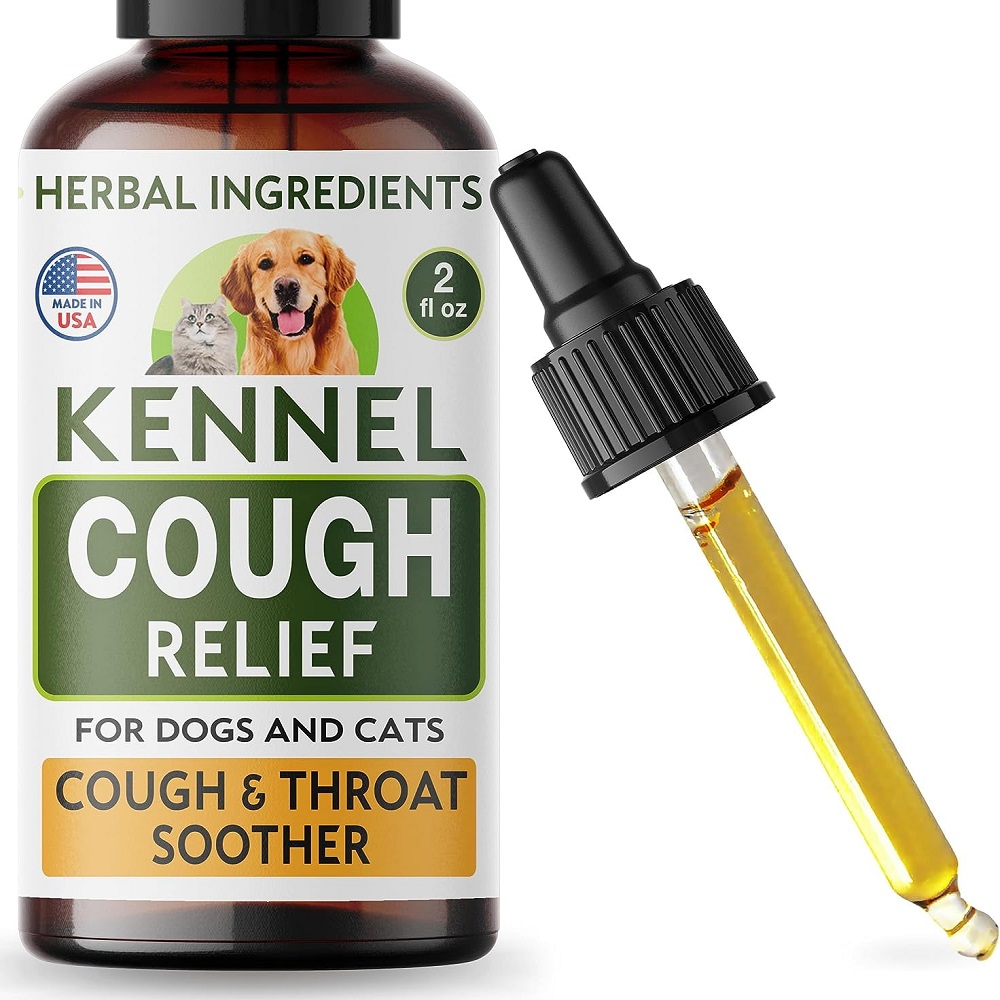
Treatment Options for Kennel Cough
When addressing kennel cough in dogs, various treatment strategies can be applied depending on the severity and the nature of the infection. Here are the foremost approaches commonly recommended by veterinarians:
Use of Antibiotics
In cases where a bacterial infection is present, antibiotics are often prescribed. Medications like doxycycline are typically used to combat common bacterial agents of kennel cough. However, it is crucial for these to be prescribed by a veterinarian based on diagnostic results.
Cough Suppressants
For dogs experiencing severe coughing, cough suppressants may be administered to provide relief. It’s important to note that suppressing cough should be cautiously approached as coughing aids in clearing the respiratory tract.
Rest and Isolation
One of the simplest yet effective treatments is ensuring the dog gets plenty of rest. Limiting physical activity helps reduce coughing bouts and speeds up recovery. Isolating the infected dog from other dogs is crucial to prevent the spread of the illness.
Hydration and Humidification
Maintaining hydration is fundamental. Providing fresh water and using a humidifier can help keep the dog’s airways moist, easing the cough.
Home Remedies
Simple home remedies like using a humidifier or providing a warm, soup-like meal can also comfort the dog. However, it’s best to consult with a veterinarian for advice tailored to your dog’s specific needs.
Veterinary Follow-ups
If symptoms persist or worsen, it is essential to revisit the vet. They might adjust the treatment plan or conduct further tests to ensure optimal care.
While many kennel cough cases resolve with mild treatment, severe instances require meticulous veterinary supervision to prevent complications. Always consult your veterinarian for the safest and most effective treatment plan for your dog.
Prevention and Vaccination Strategies
Preventing kennel cough involves several strategies. Vaccination is key, alongside good hygiene and careful interaction among dogs.
Vaccinating Your Dog
Protect your dog through vaccination. Vaccines are available for some of the main pathogens causing kennel cough. Your vet can advise on the best vaccine strategy for your pet. Vaccines may not guarantee total prevention, but they can reduce symptoms and speed up recovery.
Maintaining Good Hygiene
Keep your dog’s environment clean. Disinfect bowls, toys, and bedding regularly. Avoid shared equipment in high-risk areas. This can lower the risk of kennel cough spreading.
Managing Dog Interactions
Be cautious where your dog interacts with others. Avoid crowded, poorly-ventilated spaces. Watch for signs of illness in other dogs before allowing close contact.
Stress Reduction
Reduce stress that can weaken your dog’s immune system. Provide a stable environment and regular routine. This helps maintain their overall health.
Boosting Immunity
Ensure your dog eats a balanced diet and stays fit. A healthy body can fight off infections more effectively. Consider supplements if recommended by your vet.
Remember, if your dog frequently socializes with others, discuss vaccination with your vet. Keep your pet away from sick dogs and maintain a hygienic space. These measures can help prevent kennel cough.
Home Care for Dogs with Kennel Cough
Caring for a dog with kennel cough at home can aid their recovery. Below are tips to help comfort your pet:
Ensure Rest and Comfort
Make sure your dog has a quiet, comfortable space to rest. Limit their physical activity to help reduce coughing.
Maintain Hydration
Provide fresh water at all times. Keeping your dog well-hydrated is essential for healing.
Use a Humidifier
Running a humidifier near your dog’s resting area can keep the air moist. This helps soothe their throat and ease the cough.
Keep a Clean Environment
Regularly clean your dog’s area and wash bedding to kill germs.
Encourage Nutrition
Offer small, easy-to-swallow meals. Warm broth can entice them to eat if they have a lower appetite.
Avoid Smoke and Fumes
Keep the air around your dog free of smoke or strong smells, which can irritate their respiratory tract.
Limit Contact with Other Dogs
Prevent the spread of kennel cough. Keep your sick dog away from healthy dogs until they recover.
Remember, while you can provide supportive home care, always consult your vet for the best approach to treating your dog’s kennel cough.
When to Consult a Veterinarian
Knowing when to consult a veterinarian is crucial for a dog with kennel cough symptoms. Here are scenarios when a veterinarian’s advice is essential:
Persistent Symptoms
If your dog’s cough does not improve after a week of home treatment, see a vet. Persistent symptoms can indicate a more serious condition.
Severe Symptoms
Contact your vet immediately if your dog shows signs of severe distress. This includes labored breathing or refusal to eat.
High Fever
A high fever suggests a severe infection. A vet can determine the best intervention.
No Response to Initial Treatment
If initial treatments, like prescribed medications, do not help, a vet may adjust the plan.
Seeking timely veterinary care can prevent complications and aid quicker recovery. Always follow your vet’s guidance for the best outcomes.

